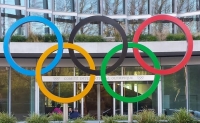Sport-Tech Diplomacy in the Tokyo Olympic Games
Principal Investigator:
Yoav Dubinsky, CPD Research Fellow 2021-23
Countries, cities and communities have been trying to use sports to improve their images to achieve social, political and economic goals going back to the Greek city-states and the athletic competitions in Ancient Olympia. The outbreak of COVID-19 changed the world of sports, cancelling and postponing events around the world, including the Olympic Games in Tokyo, and limiting diplomatic and nation branding opportunities from hosting and participating countries. As sports gradually returned, different countries, organizations and people needed to find creative solutions for the changing world, including through innovative technologies. When exploring the intersections between the sport-tech ecosystem, innovation and Israel, I coined the term “sport-tech diplomacy” (Dubinsky, 2020).
The growing use of sports technologies is a popular research line in sports management, especially in regards to analytics, e-sports and innovation. However, the role of sport-tech in nation branding and public diplomacy still remains a gap in current literature. From a public diplomacy perspective, the project contributes to literature on cultural diplomacy, sports diplomacy and soft power. Traditional definitions of public diplomacy are linked to governmental foreign policy goals (Cull, 2008), while more contemporary approaches also focus on corporate-diplomacy through the business industry and people-to-people diplomacy through private citizens. Soft power (Nye, 2004) refers to abilities of countries to achieve goals through attraction and without the use of military force including cultural diplomacy and sports diplomacy (Arning, 2013; Dubinsky, 2019; Murray, 2018). This project explores, discusses, and analyzes the intersections between sports, public diplomacy and technology, further conceptualizing “sport-tech diplomacy”.








